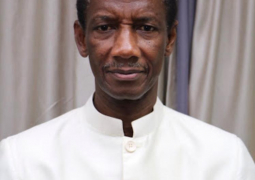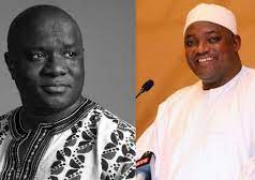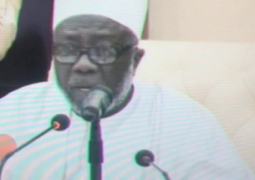It is quite sad—and frankly unacceptable—that in 2025, The Gambia’s Ministry of Justice and National Assembly still struggle to produce a progressive, principled, and modern criminal code. From my ongoing review of the new Criminal Offences Act 2025, I can state with confidence that much of the legislation is conceptually flawed, incoherently drafted, and unfit for the constitutional standards of a democratic republic.
In fact, it appears that this Act may require more amendments than the original version itself. It is that badly crafted.
I have personally written to both the President of the Republic and the Speaker of the National Assembly, raising my concerns—especially regarding Section 107(2) on "Parental Insults", which dangerously criminalizes a vague category of speech without clear definitions or intent thresholds. But another glaring example of legal absurdity is Section 113, which criminalizes the act of “wounding religious feelings.”
According to Section 113, anyone who, with deliberate intent to wound the religious feelings of another, says, writes, gestures, or shows anything that could be perceived as offensive, commits a misdemeanour punishable by up to one year of imprisonment.
This provision is so vague, subjective, and open to abuse, it should never have made it past a first reading.
Let me be very clear: even if you have not studied law, a simple Google search will show how dangerous vague laws are. In fact, many Common Law countries—including the UK, Canada, South Africa, and India—have either amended or repealed similar provisions. They’ve done so through their Law Reform Commissions, recognizing that unclear and overly broad offences undermine justice, enable abuse of power, and violate fundamental freedoms.
Section 113 is a textbook example of a law not fit for a modern democratic society. Its wording is so open-ended that it could be used to prosecute anyone, at any time, for simply expressing a religious opinion or criticism.
In a religiously diverse country like The Gambia, where both Christians and Muslims freely express their faiths in public, religious disagreement is natural and unavoidable. A Muslim might publicly state that Jesus is not God—a belief central to Islam. That could deeply offend a Christian, who believes otherwise. Similarly, a Christian proclaiming that Jesus is God could be accused by some Muslims of blasphemy.
So under Section 113, whose feelings take priority? Would both parties be guilty for simply expressing their doctrine? That is the absurdity of this law. It criminalizes religious speech in the very society that is constitutionally supposed to protect freedom of religion and expression.
To be fair, there is a legitimate public interest in regulating hate speech and incitement to violence against religious groups. But that is not what Section 113 does. Instead of targeting dangerous or extremist rhetoric, it criminalizes hurt feelings. That is not law. That is emotion policing.
A proper law would require:
Clear and objective definitions
A high threshold for criminal liability
Strong protections for free speech and religious expression
But none of that is found in Section 113. What we have instead is a blunt instrument of censorship, which could be used to suppress dissent, punish minority beliefs, and criminalize dialogue.
What is perhaps even more disappointing is the silence of the legal community. One would expect institutions like the Gambia Bar Association, the Faculty of Law, or public commentators to ring the alarm bells. But sadly, these dangerous provisions are being passed with minimal public scrutiny or resistance.
Let me say this plainly:
Section 113 is a disgrace to legal reasoning and democratic principles. It undermines constitutional protections, invites abuse, and cannot be allowed to stand.
Eventually, this provision will be repealed—either by constitutional litigation, public demand, or pressure from human rights bodies. But until then, it remains a serious threat to freedom of expression, religious freedom, and the rule of law in The Gambia.
The President and lawmakers still have time to act—not defensively, but responsibly. Fix the law. Repeal Section 113. And give this country a Criminal Code that reflects both modern legal standards and our constitutional values.





